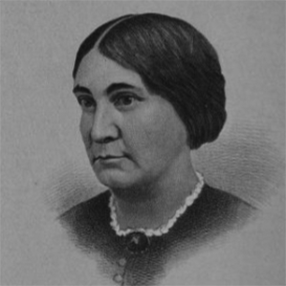Otway
Poet, whose lays our memory still
Back from the past is bringing,
Whose sweetest songs were in thy life
And never in thy singing;
For chords thy hand had scarcely touched
By death were rudely broken,
And poems, trembling on thy lip,
Alas! were never spoken.
We say thy words of hope and cheer
When hope of ours would languish,
And keep them always in our hearts
For comfort in our anguish.
Yet not for thee we mourn as those
Who feel by God forsaken;
We would rejoice that thou wert tent,
Nor weep that thou wert taken.
For thou didst lead us up from earth
To walk in fields elysian,
And show to us the heavenly shore
In many a raptured vision.
Thy faith was strong from earth’s last trial
The spirit to deliver,
And throw a golden bridge across
Death’s dark and silent river;
A bridge, where fearless thou didst pass
The stern and awful warder,
And enter with triumphant songs
Upon the heavenly border.
Oh for a harp like thine to sing
The songs that are immortal;
Oh for a faith like thine to cross
The everlasting portal!
Then might we tell to all the world
Redemption’s wondrous story;
Go down to death as thou didst go,
And up from death to glory.
This poem is in the public domain. Published in Poem-a-Day on March 8, 2025, by the Academy of American Poets.
“Otway” appears in Poems of Faith, Hope, and Love (Houghton, Mifflin and Company, 1892) by Phoebe Cary. In The Cambridge Companion to Nineteenth-Century American Women’s Writing (Cambridge University Press, 2001), writer and associate professor of English at Fairfield University, Elizabeth Petrino, cites The Nightingale’s Burden: Women Poets and American Culture before 1900 (Indiana University Press, 1983) by Cheryl Walker to illustrate Cary’s influence within the genre: “Walker advocates dividing women’s poetry into four temporal and stylistic categories: early national, romantic, realist, and modern. Early national poets, like Lydia Sigourney, appeal to piety and reason, praise decorum, and base their belief in human dignity on democracy. Romantics, like Frances Osgood, writing in the early to mid-nineteenth century and including transcendentalists, explore extreme psychological states and emotions rather than the effects of injustice on the individual. Slavery and Indian rights are abstractions. Realists, like Alice and Phoebe Cary, on the other hand, are poets who ‘take up the political challenges of the romantics but devote themselves to portraying the conditions of everyday life.’ Finally, moderns resist sentimentalism, refuse to come to tidy conclusions about moral dilemmas, use fractured language, and challenge any belief system that dictates a single view of the world.”

